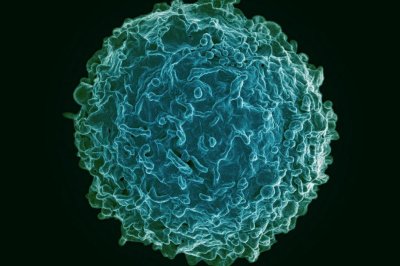Topic: Francis S. Collins
Quotes
It's pretty clear that the public is afraid of taking advantage of genetic testing
DNA tests at center of growing crisis Feb 24, 2008
Only a decade ago, most scientists thought humans had about 100,000 genes
Human gene tally cut sharply Oct 21, 2004
It's the one the 'spell-checker' doesn't seem to recognize the most often
Gene discovery explains rare aging disease Apr 16, 2003
The more genomes we have, the more powerful this tool becomes
NIH plans to sequence cow genome Mar 04, 2003
Francis S. Collins (born April 14, 1950), M.D., Ph.D., is an American physician-geneticist, noted for his landmark discoveries of disease genes and his leadership of the Human Genome Project (HGP) and described by the Endocrine Society as "one of the most accomplished scientists of our time". He currently serves as Director of the National Institutes of Health in Bethesda, Maryland. Openly Christian, Collins wrote a book about his faith and founded and was president of the BioLogos Foundation before accepting the nomination to lead the NIH. On October 14, 2009, Pope Benedict XVI appointed Francis Collins to the Pontifical Academy of Sciences.
Raised on a small farm in Virginia's Shenandoah Valley, Francis Sellers Collins was home schooled by his mother until the sixth grade. He attended Robert E. Lee High School. He is the youngest of four sons, which includes his brother, Dr. Fletcher Collins, who currently holds the title of Assistant Head of Middle School at Collegiate School in Richmond, Virginia. Throughout most of Francis's high school and college years, the aspiring chemist had little interest in what he then considered the "messy" field of biology. What he refers to as his "formative education" was received at the University of Virginia, where he earned a B.S. in Chemistry in 1970. He went on to attain a Ph.D. in physical chemistry at Yale University in 1974. While at Yale, however, a course in biochemistry sparked his interest in the molecules that hold the blueprint for life: DNA and RNA. Collins recognized that a revolution was on the horizon in molecular biology and genetics. After consulting with his old mentor from the University of Virginia, Carl Trindle, he changed fields and enrolled in medical school at the University of North Carolina at Chapel Hill, earning there an M.D. in 1977.
From 1978 to 1981, Collins served a residency and chief residency in internal medicine at North Carolina Memorial Hospital in Chapel Hill. He then returned to Yale, where he was named a Fellow in Human Genetics at the medical school from 1981 to 1984. During that time, he developed innovative methods of crossing large stretches of DNA to identify disease genes.
It uses material from the Wikipedia article "Francis S. Collins."





